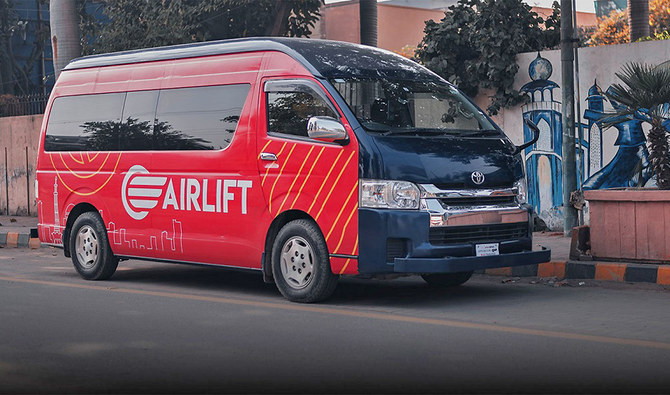ISLAMABAD: A top Pakistani quick commerce startup, Airlift, confirmed on Tuesday it was shutting down operations in light of the recent economic downturn and global recession spurned on by sluggish commercial activity and soaring fuel prices.
The South Asian country’s startups have been reeling from the recent surge in fuel prices. Pakistan has increased the price of petroleum products four times in less than two months, partly to revive its suspended deal with the International Monetary Fund (IMF).
Last month, Pakistani startup player Careem said it had suspended its food service in Pakistan and would focus on its ride-hailing and delivery segments only. Separately, app-based bus service Swvl said last month it was “pausing” its service in Karachi, Lahore Islamabad, and Faisalabad due to the “global economic downturn.”
Airlift initially started as a bus service in 2019 but later pivoted to a national grocery delivery service through which customers could order groceries, fresh produce, medicines and other items via the company’s mobile app.
The company reached a high point last year when it raised a whopping $85 million in Series B financing — the largest single private funding round in Pakistan’s history. It delivered products to households across nine cities of Pakistan including Karachi, Lahore and Islamabad.
Airlift said last month it was laying off 31 percent of its workforce. On Tuesday, it announced it was closing operations altogether.
“While the global recession and recent downturn in capital markets has affected economic activity across the board, it has had a devastating impact on Airlift and rendered its shut-down inevitable,” the company said in a press release.
Airlift said that as of July 12, the company’s operations have ceased.
The startup explained how several investors shared uncertainty in wire schedules and their disbursements in early July during a capital-raising exercise after “rapidly deteriorating conditions in the global economy.”
The startup, however, said it would ensure its employees were provided salaries for the months of July and August.
“For suppliers, vendors and other third parties, our team will communicate proactively to manage arrears and liabilities as a part of our ongoing shut-down process,” it added.


















